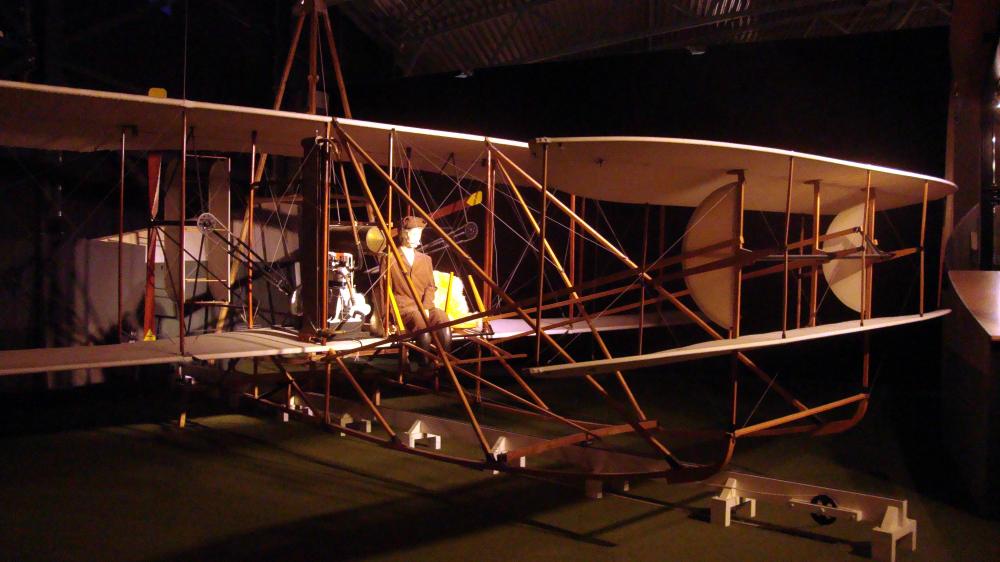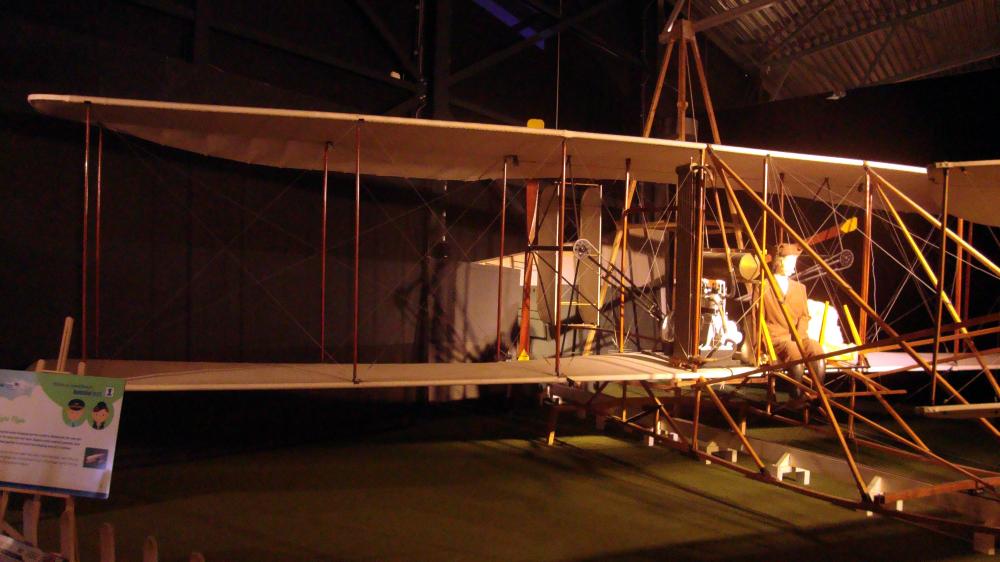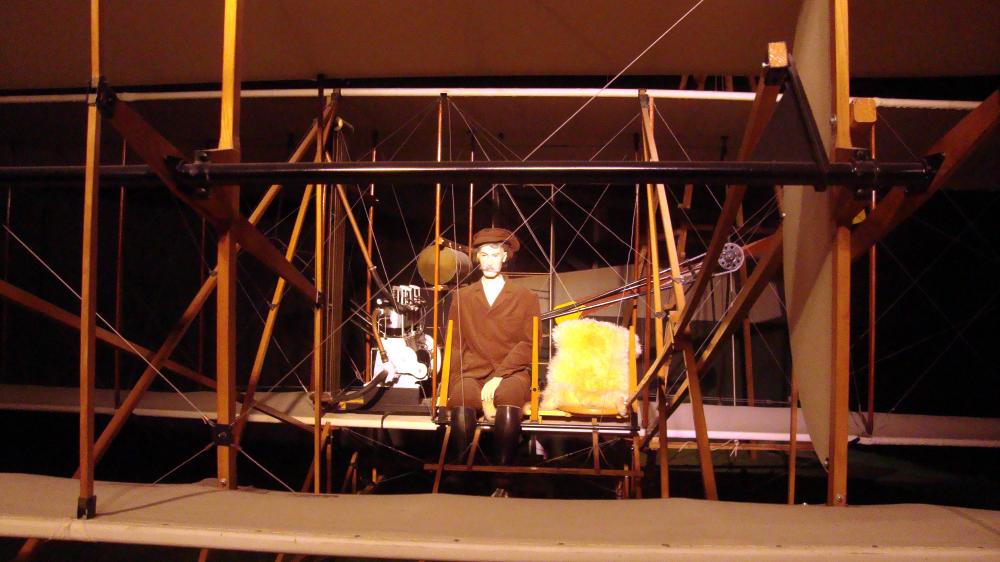Wright brothersThe Wright brothers, Orville (August 19, 1871 - January 30, 1948) and Wilbur (April 16, 1867 - May 30, 1912), were two American aviators, engineers, inventors, and aviation pioneers who are generally credited with inventing, building, and flying the world's first successful airplane, the Wright Flyer (often retrospectively referred to as Flyer I or 1903 Flyer). They made the first controlled, sustained flight of a powered, heavier-than-air aircraft on December 17, 1903, four miles south of Kitty Hawk, North Carolina. In 1904–05 the brothers developed their flying machine into the first practical fixed-wing aircraft (Flyer II, Flyer III). Although not the first to build experimental aircraft, the Wright brothers were the first to invent aircraft controls that made fixed-wing powered flight possible. Wright Model AThe Wright Model A was an early aircraft produced by the Wright Brothers in the United States beginning in 1906. It was a development of their Flyer III airplane of 1905. The Wrights built about seven Model As in their bicycle shop during the period 1906–1907 in which they did no flying. One of these was shipped to Le Havre in 1907 in order to demonstrate it to the French. The Model A had a 35-horsepower (26 kW) engine and seating for two with a new control arrangement. Otherwise it was identical to the 1905 airplane. The Model A was the first aircraft that they offered for sale, and the first aircraft design to enter serial production anywhere in the world. Apart from the seven machines the Wrights built themselves in 1906–1907, they sold licences for production in Europe with the largest number of Model As actually being produced in Germany by Flugmaschine Wright GmbH, which built about 60 examples. 


Wright Model A (replica)
|